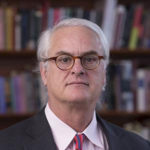A large and growing body of scholarship documents the effects of regime type on economic growth and other indicators of economic performance. This program builds on that work to probe more deeply into what aspects of democracy (or autocracy), law, and social arrangements matter, by what mechanisms. In the weakly institutionalized democracies that constitute, in fact, the majority of the world’s democracies, dynamics of political competition often skew towards private exchanges between politicians and groups of supporters (clientelism). An aim of this project is also, then, to understand the dynamics behind better and worse forms of democratic institutions from the standpoint of long-term growth and prosperity, and the demographic, technological, and political forces that push governments towards good and bad forms.
Principal Investigator
 Ian Shapiro is Sterling Professor of Political Science and Global Affairs at Yale University. He has written widely and influentially on democracy, justice, and the methods of social inquiry. A native of South Africa, he received his J.D. from the Yale Law School and his Ph.D from the Yale Political Science Department where he has taught since 1984 and served as chair from 1999 to 2004. Shapiro served as Henry R. Luce Director of the MacMillan Center for International and Area Studies from 2004-2019. He is a fellow of the American Academy of Arts and Sciences and the American Philosophical Society, and a member of the Council on Foreign Relations and the National Academy of Social Insurance. Shapiro is a past fellow of the Carnegie Corporation, the Guggenheim Foundation, and the Center for Advanced Study in the Behavioral Sciences. He has held visiting appointments at the University of Cape Town, Keio University in Tokyo, and Nuffield College, Oxford. His recent books are Politics Against Domination (Harvard University Press, 2016), Responsible Parties: Saving Democracy from Itself (Yale University Press, 2018) with Frances Rosenbluth, The Wolf at the Door: The Menace of Economic Insecurity and how to Fight It (Harvard University Press, 2020) with Michael Graetz, and Uncommon Sense (Yale University Press, 2024). His current research concerns the relations between democracy and the distribution of income and wealth and the sources and consequences of populist politics.
Ian Shapiro is Sterling Professor of Political Science and Global Affairs at Yale University. He has written widely and influentially on democracy, justice, and the methods of social inquiry. A native of South Africa, he received his J.D. from the Yale Law School and his Ph.D from the Yale Political Science Department where he has taught since 1984 and served as chair from 1999 to 2004. Shapiro served as Henry R. Luce Director of the MacMillan Center for International and Area Studies from 2004-2019. He is a fellow of the American Academy of Arts and Sciences and the American Philosophical Society, and a member of the Council on Foreign Relations and the National Academy of Social Insurance. Shapiro is a past fellow of the Carnegie Corporation, the Guggenheim Foundation, and the Center for Advanced Study in the Behavioral Sciences. He has held visiting appointments at the University of Cape Town, Keio University in Tokyo, and Nuffield College, Oxford. His recent books are Politics Against Domination (Harvard University Press, 2016), Responsible Parties: Saving Democracy from Itself (Yale University Press, 2018) with Frances Rosenbluth, The Wolf at the Door: The Menace of Economic Insecurity and how to Fight It (Harvard University Press, 2020) with Michael Graetz, and Uncommon Sense (Yale University Press, 2024). His current research concerns the relations between democracy and the distribution of income and wealth and the sources and consequences of populist politics.
Affiliated Faculty
 William N. Goetzmann is the Edwin J. Beinecke Professor of Finance and Management Studies and Faculty Director of the International Center for Finance at the Yale School of Management. He is an expert on a diverse range of investments. His past work includes studies of stock market predictability, hedge funds and survival biases in performance measurement. His current research focuses on alternative investing, factor investing, behavioral finance and the art market.
William N. Goetzmann is the Edwin J. Beinecke Professor of Finance and Management Studies and Faculty Director of the International Center for Finance at the Yale School of Management. He is an expert on a diverse range of investments. His past work includes studies of stock market predictability, hedge funds and survival biases in performance measurement. His current research focuses on alternative investing, factor investing, behavioral finance and the art market.
Professor Goetzmann has written and co-authored a number of books, including Modern Portfolio Theory and Investment Analysis (Wiley, 2014), The Origins of Value: The Financial Innovations that Created Modern Capital Markets (Oxford, 2005), The Great Mirror of Folly: Finance, Culture and the Crash of 1720 (Yale, 2013) and most recently, Money Changes Everything: How Finance Made Civilization Possible (Princeton, 2016). He teaches portfolio management, alternative investments, real estate and financial history at the Yale School of Management.
 Geert Rouwenhorst is the Robert B. and Candice J. Haas Professor of Corporate Finance & Deputy Director of the International Center for Finance at the Yale School of Management.
Geert Rouwenhorst is the Robert B. and Candice J. Haas Professor of Corporate Finance & Deputy Director of the International Center for Finance at the Yale School of Management.
Geert Rouwenhorst specializes in empirical finance and asset pricing. His research interests include risk and return in international equity markets, commodity investments, and the history of financial innovation. He has held visiting positions at MIT and the IMF. His co-edited book The Origins of Value: The Financial Innovations that Created Modern Capital Markets surveys key historical innovations in the field of finance, and was named a book of the year by Barron’s and the Economist.
Postdoctoral Fellow
 Fernando Bizzarro is a political scientist whose research in comparative politics and political economy explores the nature, causes, and consequences of democracy and political parties, with a substantive focus on Latin America. He is currently working on a book project that studies the interplay between economic inequality and political personalism in Brazil. At the Jackson School, he will collaborate with the Leitner Program’s agenda of studying how strong political parties and governments make democracy work and promote inclusive economic growth.
Fernando Bizzarro is a political scientist whose research in comparative politics and political economy explores the nature, causes, and consequences of democracy and political parties, with a substantive focus on Latin America. He is currently working on a book project that studies the interplay between economic inequality and political personalism in Brazil. At the Jackson School, he will collaborate with the Leitner Program’s agenda of studying how strong political parties and governments make democracy work and promote inclusive economic growth.
Student Researchers
Viola Fur
Cam Greene
Ryotaro Homma
Julia Hossain
Sheena Kwan
Bilal Moin
Edward Seol
Vivian Zhao